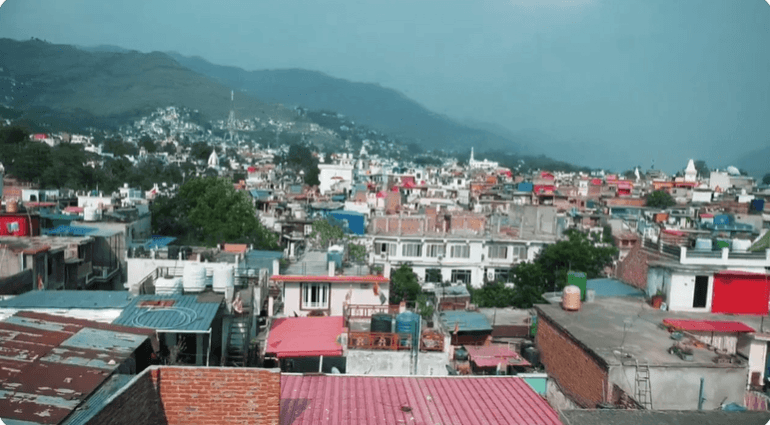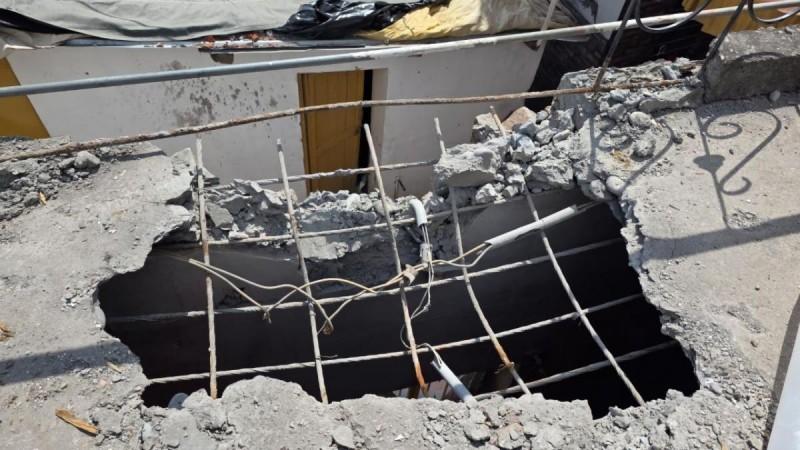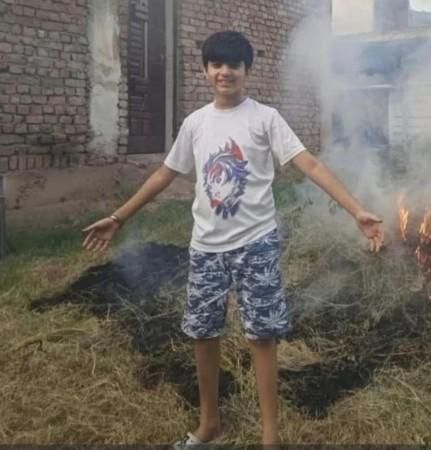
Today marks exactly five months since Pakistan's brutal attack on innocent civilians in Poonch, but life in this border town has yet to return to normal in any real sense.
Although peace has prevailed in this town—which witnessed Pakistan's barbarity during the intervening nights of May 6 and 7—the residents of Poonch remain anxious about their safety in case a similar incident occurs again.

"Our demand for constructing community and individual bunkers is yet to be fulfilled," advocate Ronik Sharma, a local social activist from Poonch, told International Business Times.
"After the May 7 incident, when the Pakistani Army attacked Poonch town with artillery, there arose a dire need to construct community as well as individual bunkers to save lives in case such an attack is repeated," he said.
Dr. Vivek Arya, a native of Poonch, told International Business Times that although the authorities and several social organizations have taken steps to rehabilitate the affected families, the residents continue to suffer from post-war trauma.
"For the first time in history, this border town was attacked by Pakistan with heavy artillery," Dr. Arya said. He emphasized the need for continued counseling of the affected families by doctors and spiritual leaders. "Monetary help is important, but there is also a need for sustained psychological counseling," he added.

15 civilians lost their lives in Pakistani shelling
The border town of Poonch was turned into a landscape of sorrow following intense Pakistani shelling on the night of May 6–7, 2025. The attack claimed the lives of at least 15 civilians, including four children, and left 59 others injured.

Rameez Khan and Urusa Khan, the ill-fated parents, lost their 12-year-old twins, Aruba and Ayan, in the shelling. The same is the tragic story of Sanjeev Kumar Bhargava, whose only son, 13-year-old Vihaan, was killed in the barrage. The tragedy sparked widespread outrage and grief across the nation.
In the intervening night of May 6 and May 7, Pakistan resorted to heavy artillery shelling targeting residential areas in Poonch town.
The indiscriminate attack on unarmed civilians has been condemned as a grave violation of humanity, turning the once-vibrant town into a place of mourning. Amid the shelling, the Bhargava family of Poonch was fleeing to Jammu for safety when their vehicle came under attack in the Khanater area.
A mortar shell struck a nearby rock, sending splinters into the car. Vihaan Bhargava, the only son of the family, seated in the back row, was fatally injured. His mother, seated to his right, and his aunt and her child, seated to his left, miraculously escaped unhurt. Despite being rushed to the district hospital in Poonch, Vihaan was declared dead on arrival. The loss of their only child has left the Bhargava family in profound grief.

Rameez and Urusa Khan, who had moved to Poonch just two months earlier for a better future, suffered an unimaginable loss. Their twins, Aruba and Ayan—who had recently celebrated their birthday and started school—were killed within minutes of each other in the mortar attack on May 7.
Poonch continues to grapple with deep wounds
Once considered a symbol of brotherhood and communal harmony, Poonch continues to grapple with the scars of that horrific night. Homes were destroyed, families scattered, and—most painfully—the sense of trust and security among residents was shattered.
Locals still shudder at the memory of that morning. Just as children were preparing for school, the elderly were out for their walks, and families were settling down for breakfast, shells began raining from the sky. Within moments, homes were reduced to ashes, streets turned red with blood, and the entire town was thrown into chaos.

Even after five months, normalcy remains elusive. People flinch at every loud sound. Children are afraid to go to school, and parents hesitate to send them out. The markets are deserted—shopkeepers say people only step out to buy essentials before rushing back home.
News of continuing border tensions and occasional gunfire adds to public anxiety. Many families are considering relocating to safer areas, but financial constraints and employment issues hold them back.
May 7 has become a dark chapter in Poonch's history.
It is not only the story of 15 innocent lives lost, but also of the deep fear and insecurity that still grip the town. Yet, the people of Poonch have not given up—they continue to live under the shadow of fear, but their courage remains unbroken.














